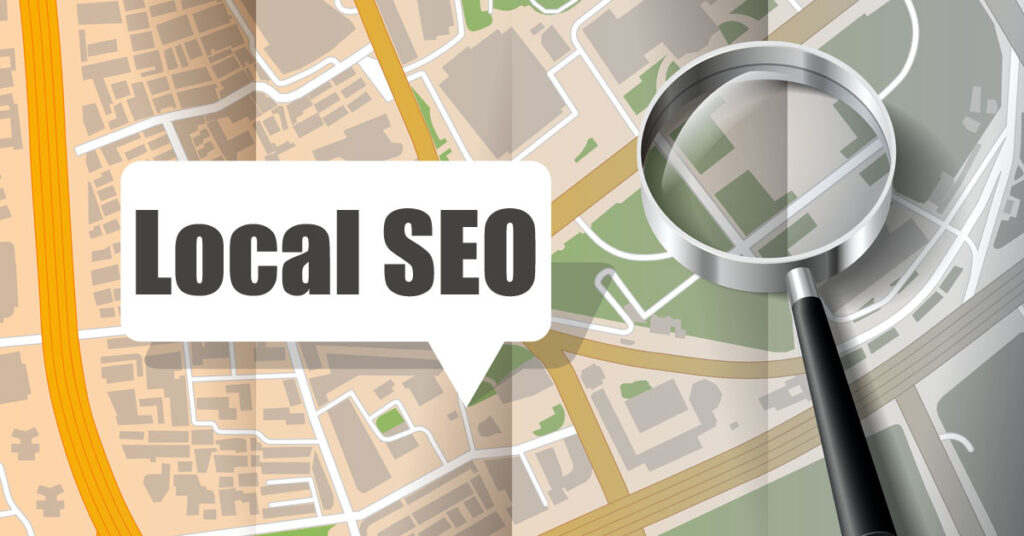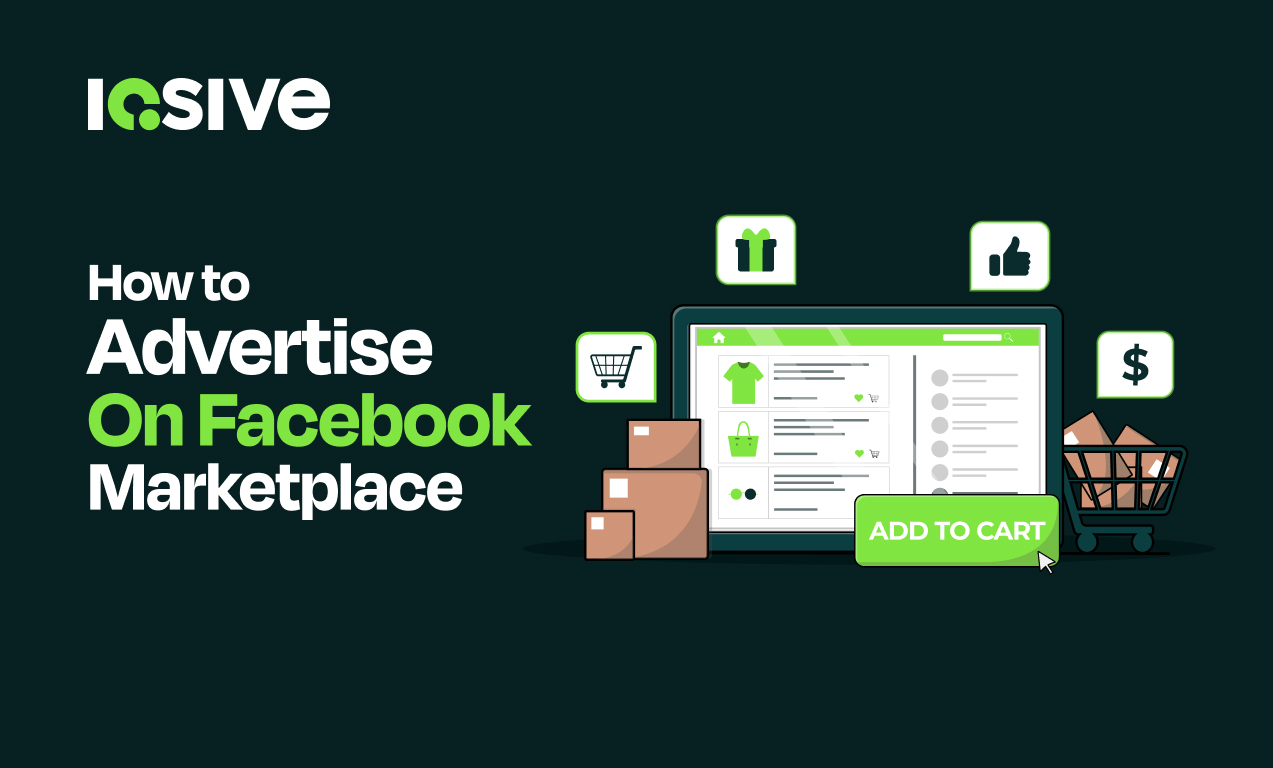Local SEO is a powerful strategy to help businesses boost their visibility in location-specific search results, connecting them with nearby customers. This blog explores what it is, how it works, and the best strategies to get started.
What is Local SEO?
Local SEO (Local Search Engine Optimization) is the process of optimizing a business’s online presence to attract more customers from relevant local searches. These searches usually have geographic qualifiers, such as “near me,” city names, or zip codes, and typically occur on search engines like Google, Bing, or Yahoo.
How Does Local SEO Work?
Local SEO works by optimizing your online presence to make your business more visible to people conducting location-specific searches. Search engines like Google use three main factors to determine which businesses appear in local search results:
- Proximity: How close your business is to the searcher’s location.
- Relevance: How well your business matches the search query.
- Prominence: How well-known or credible your business is online, which is influenced by factors such as reviews, backlinks, and citations.
These factors help search engines decide which businesses are featured in the local pack (the top three map listings) and other local search results.
Local SEO Sites:
Below are key types of sites and platforms you should leverage for Local SEO:
1. Google Business Profile (GBP)
Google Business Profile (formerly Google My Business) is the most crucial platform for Local SEO. It allows businesses to appear in Google Maps, the local pack, and local search results. Optimize your profile by adding accurate information such as business name, address, phone number (NAP), website, photos, and operating hours. Encourage customer reviews to boost credibility.
2. Bing Places for Business
Similar to Google Business Profile, Bing Places allows your business to appear in local search results on Bing. Listing your business here ensures you reach users who prefer Bing as their search engine.
3. Online Business Directories
Listing your business on reputable directories like Yelp, Yellow Pages, Foursquare, and Angie’s List increases your online presence and helps with citation consistency. Ensure that your NAP details are accurate and consistent across all platforms to improve trust and ranking signals.
4. Review Sites
Platforms such as Yelp, TripAdvisor, and Trustpilot are essential for businesses in service industries. Positive reviews on these sites enhance your reputation and influence potential customers. Monitor and respond to reviews regularly to maintain a positive online presence.
5. Social Media Platforms
Sites like Facebook, Instagram, and Twitter play an indirect role in Local SEO. Creating and maintaining business profiles on these platforms helps engage your local audience, share updates, and promote offers. Facebook also offers location-based advertising to target users in your area.
6. Industry-Specific Directories
For niche businesses, industry-specific directories can drive highly relevant traffic. For example:
Real Estate: Zillow, Realtor.com
Hospitality: TripAdvisor, Booking.com
Healthcare: Healthgrades, Zocdoc
7. Aggregator Sites
Aggregator platforms like Apple Maps, MapQuest, and Waze are vital for location-based businesses. Ensure your business information is accurate on these platforms to help customers easily find you.
Local SEO Benefits:
Local SEO offers several benefits for businesses, particularly those that rely on local customers. Here are the key advantages:
1. Increased Online Visibility
Local SEO ensures that your business is easily discoverable in local search results and Google Maps. This improved visibility makes it more likely that potential customers in your area will find your business when searching for relevant products or services. Appearing prominently in search results can significantly boost your online presence, helping you stand out from competitors.
2. Targeted Traffic
By optimizing for local search terms, Local SEO drives traffic specifically from people in your area looking for your services. These users are already searching with intent, meaning they are more likely to convert into customers. For example, someone searching for “pizza delivery near me” is likely ready to place an order, making this a highly effective way to attract valuable leads.
3. Builds Trust and Credibility
A well-optimized Google Business Profile, combined with positive customer reviews, builds trust and credibility for your business. When customers see your business ranking high in local searches with good reviews, they are more likely to perceive you as a reliable and trustworthy option. This boosts customer confidence and sets you apart from less optimized competitors.
4. Better Conversion Rates
Local searches often lead to immediate action, such as a phone call, store visit, or purchase. According to Google, 76% of local mobile searches result in a visit to a store within a day. This high conversion potential makes Local SEO a powerful tool for driving sales and growing your business. With the right optimizations, you can turn local searchers into loyal customers.
5. Cost-Effective Marketing
Compared to traditional advertising methods, Local SEO is a more affordable marketing strategy that delivers long-term results. Once your business ranks well locally, it requires less ongoing effort to maintain visibility. This cost-effective approach allows small and medium-sized businesses to maximize their marketing budgets and achieve sustainable growth.
6. Competitive Advantage
Local SEO helps small and medium-sized businesses compete with larger corporations by focusing on a niche local market. Even if larger businesses dominate national or global search results, your local focus allows you to rank higher in your specific area. This localized approach helps you attract customers who prefer to support businesses within their community.
7. Builds Community Engagement
A strong local presence fosters deeper connections with your community. By being visible and actively engaging with local customers, you can build brand loyalty and a positive reputation. Local SEO also enhances the impact of initiatives such as hosting events, offering promotions, or participating in local causes, creating a more engaged customer base.
8. Increases In-Store Traffic
Local SEO doesn’t just drive online traffic; it also brings customers into your physical store. Enhanced visibility encourages users to visit your location after finding you online. Google reports that 78% of local mobile searches lead to an offline purchase, highlighting how Local SEO bridges the gap between online searches and real-world sales.
Local SEO Techniques:
Local SEO techniques are strategies that help businesses optimize their online presence to attract more customers from local search results. Below are some effective Local SEO techniques:
1. Optimize Google Business Profile (GBP)
Claim and optimize your Google Business Profile by providing accurate information, including business name, address, phone number (NAP), website, and business hours. Add high-quality images, update posts regularly, and encourage customers to leave reviews.
2. Consistent NAP Information
Ensure your Name, Address, and Phone number (NAP) are consistent across your website, online directories, and social media platforms. Inconsistencies can confuse search engines and harm your local rankings.
3. Target Local Keywords
Conduct keyword research to identify location-specific keywords, such as “plumber in Chicago” or “best coffee shop near me.” Use these keywords in your website content, meta titles, meta descriptions, and headings.
4. Build Local Citations
List your business in local directories such as Yelp, Yellow Pages, and Foursquare. Include accurate NAP details and ensure uniformity across all platforms. This boosts your credibility and helps search engines verify your business’s location.
5. Create Location-Specific Landing Pages
For businesses serving multiple locations, create dedicated landing pages for each area. Optimize these pages with local keywords, unique content, and information specific to the location.
6. Collect and Manage Online Reviews
Encourage customers to leave reviews on platforms like Google, Yelp, and Facebook. Respond to all reviews—positive and negative—to show that you value customer feedback. Positive reviews build trust and improve rankings.
7. Optimize for Voice Search
Optimize content for voice search by targeting long-tail keywords and answering common questions in a conversational tone. Voice searches often include phrases like “near me” or “open now,” so ensure your website addresses these queries.
8. Use Schema Markup
Implement local business schema markup on your website to help search engines understand your business’s details, such as address, phone number, operating hours, and services offered.
9. Leverage Social Media
Engage with your local audience through social media platforms like Facebook, Instagram, and Twitter. Share local events, promotions, and updates to connect with your community and drive traffic to your site.
10. Create Locally Relevant Content
Publish blog posts or articles related to local news, events, or tips. For example, a real estate business can write about “Top Neighborhoods to Buy a Home in [City].” Locally relevant content attracts local traffic and engagement.
11. Use Google Maps Features
Embed a Google Map of your business location on your website’s contact or location page. This makes it easier for customers to find you and improves your local SEO ranking.
To sum up, local SEO is a game-changer for businesses aiming to increase their local presence. By mastering the key strategies and techniques, you can ensure your business stands out in local search results and attracts more nearby customers. The right local SEO efforts can lead to increased visibility, more foot traffic, and higher conversions. Start optimizing now to see long-term success in your local market.












